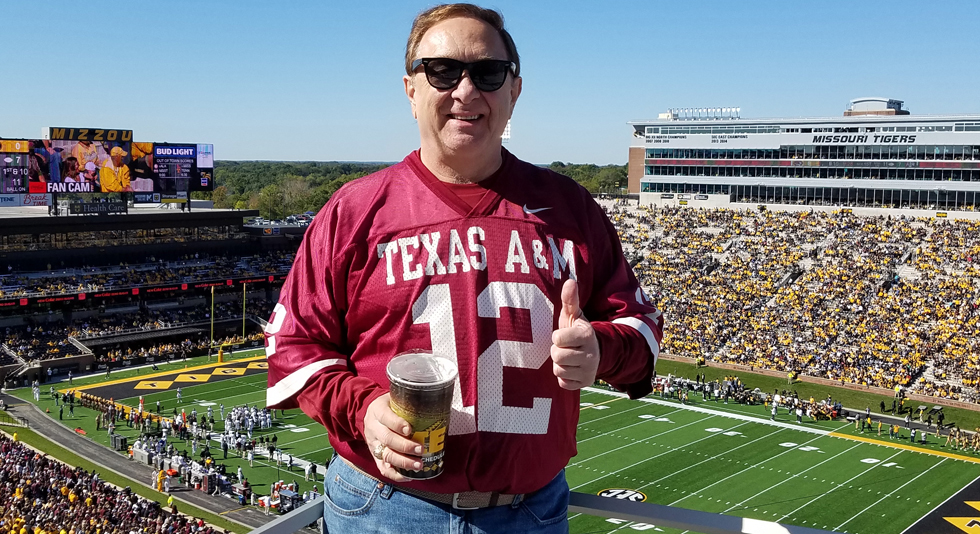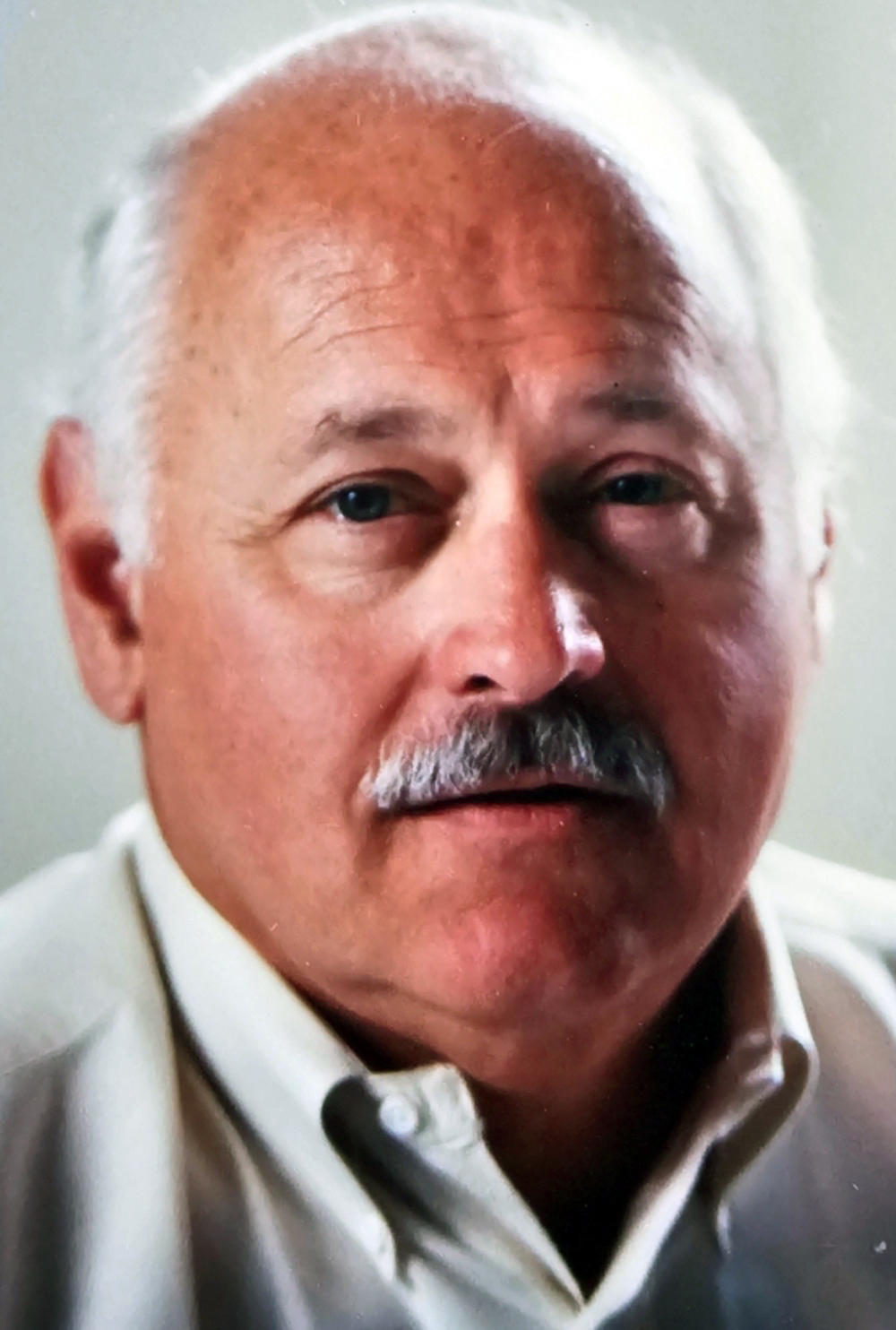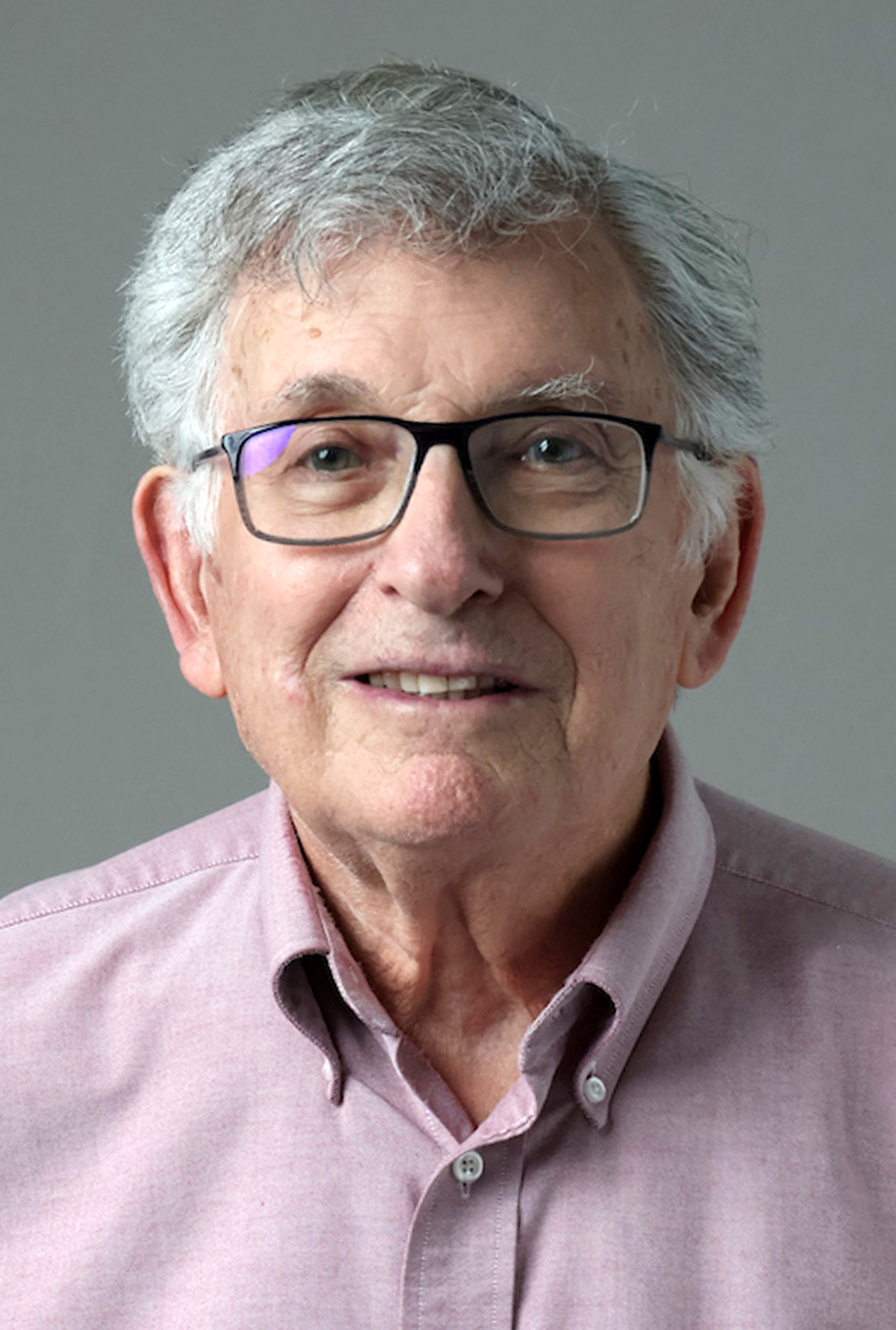
Kevin Bean ’74 has many fond memories of his time at Texas A&M University, including working on The Aggieland yearbook, serving as secretary and vice president of Moses Hall, attending men’s basketball games, organizing mathematics department football games and being at opening night and the one-year birthday of the Dixie Chicken.
Yet when he looks back, Bean credits two faculty members for leaving an impression on his life: the late Dr. James Boone ’60 in the Department of Mathematics and Dr. William Bassichis in the Department of Physics and Astronomy. To honor their influence, Bean has created the Kevin Bean ’74 Endowed Mathematics Scholarship Honoring Dr. James Boone ’60 and Dr. William Bassichis in their names that will support future Aggies from Ellis County, Texas, who are studying mathematics at Texas A&M.
Growing up in Ellis County, Bean excelled in mathematics and graduated fourth in his class of 21 students at Italy High School. “I thought I knew my stuff,” he said, “but I had a rude awakening when I earned a D in the first semester of my first-year calculus course.”

During his second semester, Bean enrolled in Boone's calculus class. “I attribute my decision to pursue a math major to the encouragement and support I received from Dr. Boone,” he said. “He told me that I reminded him of himself and helped me gain confidence in my innate ability. I turned the corner, earned a 3.3 GPA and never looked back.”
Bean’s next academic challenge was physics. “The only Texas A&M courses I feared after I got through those first few math courses were Physics 218 and 219, and I was lucky enough to have Dr. Bassichis for both those classes,” he said. “He somehow made difficult material understandable, not only for me but for everyone in class. He was a skilled instructor and a smart man who knew his stuff in physics.”
Bean went on to earn bachelor’s and master’s degrees at Texas A&M in 1973 and 1975 and then taught at Richland Community College before joining Southwestern Bell. The Richardson, Texas, resident worked in the electronics industry until his retirement in 2018.
Mentors In Mathematics And Physics
Throughout his career, Boone was known for his extensive work in mathematics education and received 1982 and 1988 Texas A&M University Awards for Distinguished Teaching as well as the 1993 Mathematical Association of America Texas Section Award for Distinguished College Teaching. He died in 1998 after a long struggle with diabetes.
Bassichis remains on the Texas A&M faculty and previously was honored by another former student whose initial donoation was combined with contributions from additional former students, friends, faculty and family to create the William H. Bassichis Chair for Teaching Excellence in Physics and Astronomy, which Bassichis has held since 2016. In addition to being recognized in 2003 as one of Texas A&M's inaugural Presidential Professors for Teaching Excellence, Bassichis has received Texas A&M Association of Former Students Distinguished Achievement Awards in Teaching in 1978, 1984 and 1994. He continues to study nuclear theory with an emphasis on many-body theory and authored “Don’t Panic,” an innovative general physics text for engineers and scientists.
From Estate Gift To Immediate Impact: Bean’s Scholarship Journey

Bean made a meaningful change to his philanthropic plans for Texas A&M. Initially, he had intended to establish a scholarship fund through his estate, creating a legacy after his death. However, he realized he wanted to personally meet and interact with the Aggie students who would benefit from his generosity.
This desire led Bean to modify his gift from a future estate donation to an immediate contribution. By doing so, he ensured that the scholarship would be available sooner, allowing him to witness its impact firsthand. This decision aligns with Bean's longstanding commitment to supporting Texas A&M, as evidenced by his impressive 46-year streak of Century Club donations to The Association of Former Students.
With the inaugural scholarship set to be awarded in 2025, Bean is taking an active role in promoting this opportunity. He plans to visit high schools throughout Ellis County to raise awareness about the scholarship and encourage eligible students to apply. This personal involvement demonstrates Bean's dedication to not only supporting Aggie education financially but also actively participating in the process of helping deserving students access higher education at Texas A&M.
Looking back, Bean is grateful for his parents' commitment to his college education and aims to support fellow Aggies whose families may face financial constraints.
"My parents were determined to fund my education without seeking scholarships, as they felt it would suggest financial need," he added. "They had diligently saved $7,500 in U.S. savings bonds since my birth to cover my college expenses. Upon graduation, they handed me a check for $600 — the remaining amount — to put toward graduate school. But that sum barely scratches the surface of today's tuition costs."

